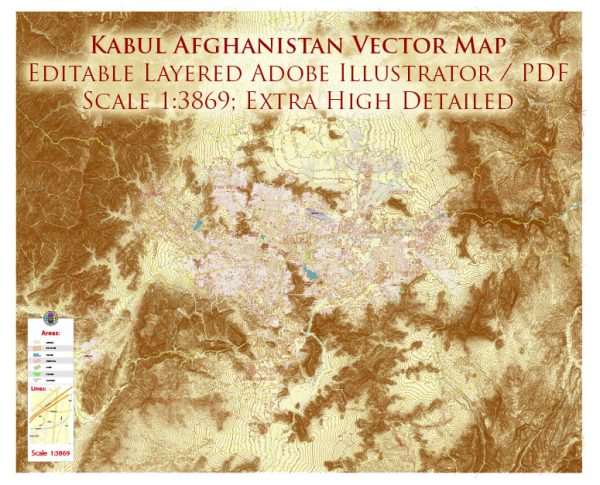Kabul, the capital city of Afghanistan, faces significant challenges related to water resources. These challenges are primarily due to rapid population growth, urbanization, environmental degradation, and the ongoing conflict in the country. Here are some key points about Kabul’s water resources:
- Water Scarcity: Kabul experiences chronic water scarcity. The city’s water supply system is unable to meet the demands of its growing population, which has led to many residents lacking access to clean and safe drinking water. Water sources, such as rivers and groundwater, have been over-exploited, leading to a decline in water quality and availability.
- Pollution: The Kabul River, which flows through the city, is heavily polluted due to the discharge of untreated sewage and industrial effluents. This pollution has a severe impact on the quality of water available for drinking and agricultural purposes.
- Groundwater Depletion: Many residents rely on groundwater wells for their water supply. The excessive extraction of groundwater has led to a drop in the water table, causing land subsidence in some areas and affecting the long-term sustainability of this water source.
- Inadequate Infrastructure: The city’s water infrastructure is outdated and in need of significant investment and maintenance. Many water pipes and distribution systems are old and leaky, resulting in water losses.
- Conflict and Security Concerns: Ongoing conflict and security issues in Afghanistan have made it difficult for authorities to address water resource management effectively. Infrastructure development and maintenance have been hampered by the security situation.
- International Assistance: Several international organizations and donor agencies have been working on water resource management projects in Kabul and other parts of Afghanistan. These efforts aim to improve access to clean water, enhance wastewater treatment, and address environmental concerns.
- Climate Change: Afghanistan is vulnerable to the impacts of climate change, which can exacerbate water-related challenges. Erratic rainfall patterns, prolonged droughts, and the melting of glaciers in the region can affect the availability of water resources in Kabul.
Efforts to address Kabul’s water resource challenges require a combination of improved infrastructure, better water management practices, pollution control, and sustainable groundwater use. These initiatives are essential for ensuring the well-being and development of the city and its residents. However, the ongoing security situation in Afghanistan makes it difficult to implement comprehensive solutions effectively.


 Author: Kirill Shrayber, Ph.D. FRGS
Author: Kirill Shrayber, Ph.D. FRGS